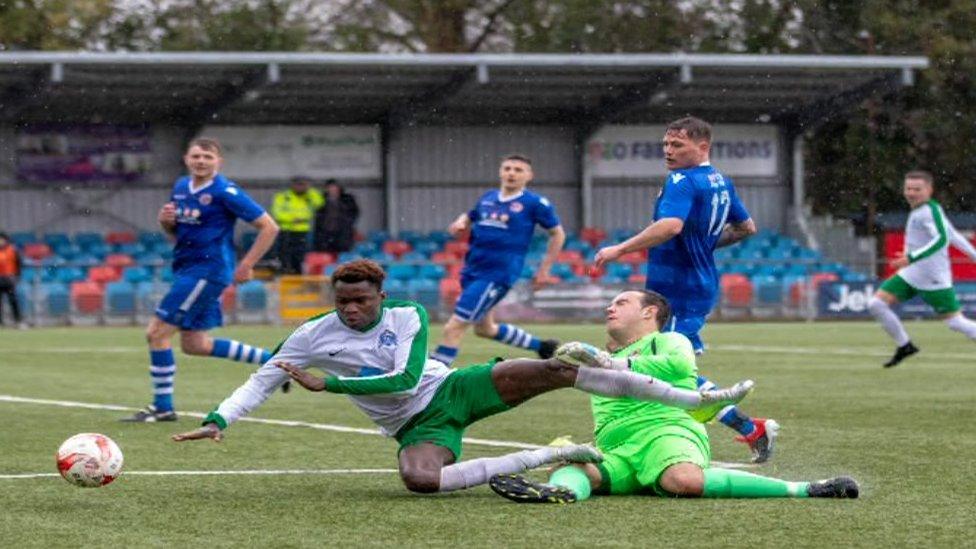Racism in football: Reporting process is 'broken'
- Published
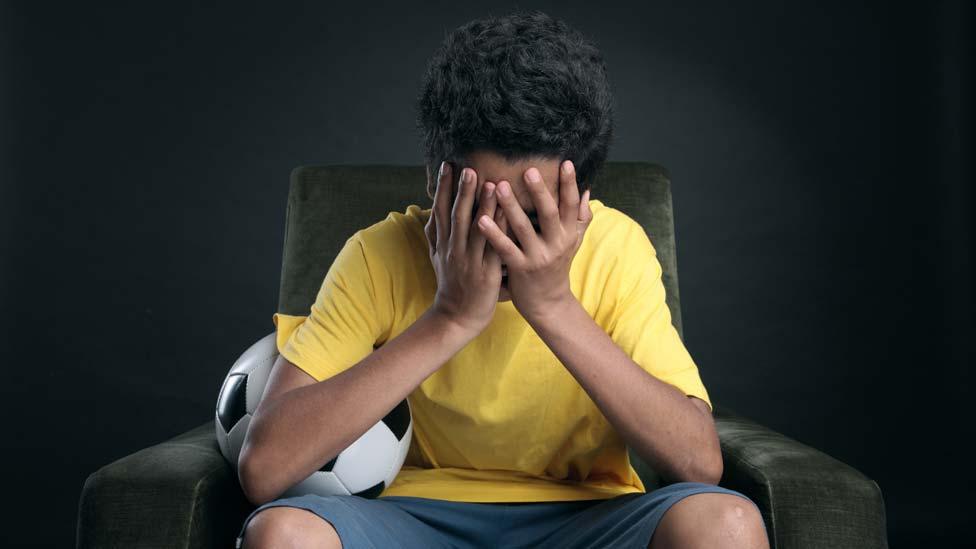
The number of matches in England and Wales where a hate crime was reported increased by 47% last season
The way racism is reported in grassroots football is "broken" and needs an overhaul, a coach has said.
Complaints of racism too often become "one word against another", according to award-winning coach Delwyn Derrick.
A multi-ethnic side from Cardiff said they regularly experienced abuse from spectators and found it "disheartening" when complaints were dismissed.
Welsh football's governing body said it aims to create an "inclusive, welcoming and safe environment" for all players.
In the 2018-19 season, the number of matches in England and Wales where a hate crime was reported increased by 47%, from 131 matches to 193, according to Home Office figures, external.
The Football Association of Wales (FAW) said "racism is a societal issue, rather than a football issue".
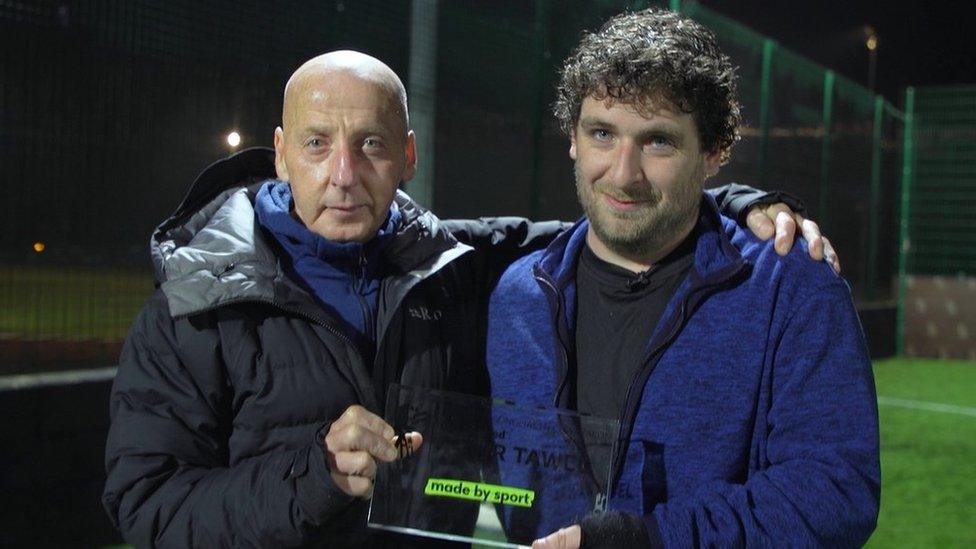
Delwyn Derrick (right) was awarded the BBC Cymru Wales Sports Personality Unsung Hero 2019 by Mickey Thomas
Mr Derrick won the 2019 BBC Cymru Wales Sports Personality Unsung Hero award for his work managing Wrexham-based Bellevue FC.
"The reporting system is broken," he said
"The system is: You send in a complaint by email, once that's received by the regional football association or the FAW, they investigate by asking for the observations of the other club.
"Immediately that becomes one word against another - it becomes an argument."
The FAW deals with complaints in the top four tiers of Welsh football, while incidents in the lower tiers are investigated by regional football associations.
Of the six charges alleging racism brought by the FAW since September 2015, only one was found proven by the FAW disciplinary panel, external.
There is a "lack of confidence" in the way regional associations deal with complaints, according to Jason Webber from Show Racism the Red Card.
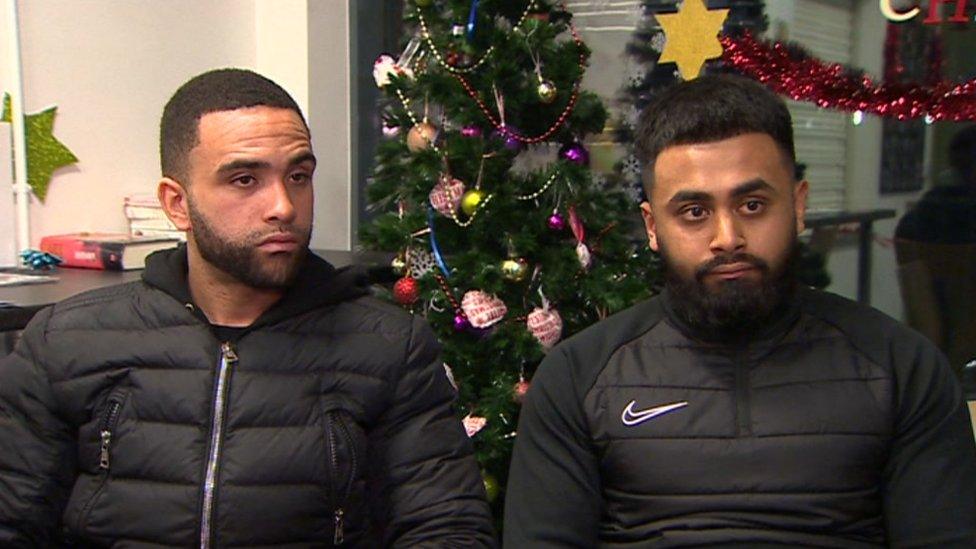
Raphael Kingsley (left) and Rizwan Ahmed say they have lost all confidence in the system
AFC Butetown, from one of the most multicultural areas of Cardiff, play in the South Wales Alliance League.
Players Raphael Kingsley and Rizwan Ahmed said the team has lost all confidence in the associations' ability to stamp out racism.
While playing a team in the south Wales valleys this season, they say their striker was called the n-word by a spectator.
It was reported but "nothing was done about it", Mr Ahmed said.
He added: "It is frustrating. You go down the right routes, the right protocols they tell you to go down - you do the right things and nothing gets done."
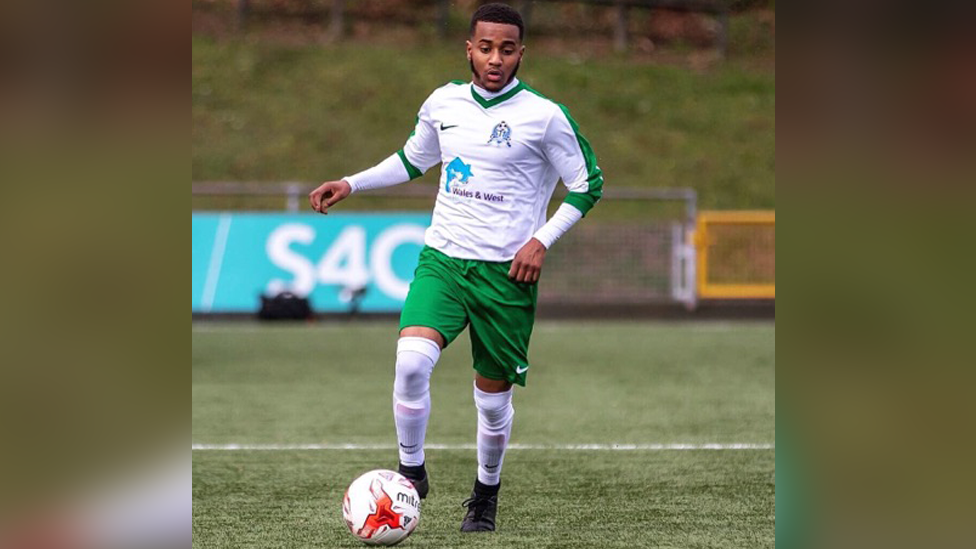
Hermon Yohanes says he was racially abused during the "worst game of his life"
Hermon Yohanes, of Cardiff-based STM Sport, said he was racially abused during the first half of a game against Wrexham's Cefn Albion FC in March.
"They were talking about my family, using the n-word and dog. It was the worst game of my life," the Eritrean-born 23-year-old said.
Mr Yohanes, who moved to Wales in 2011, said he told the referee about the abuse at half time and complained to police and the FAW after the game.
In July the charge was found not proven, leaving Mr Yohanes "gutted and disappointed".
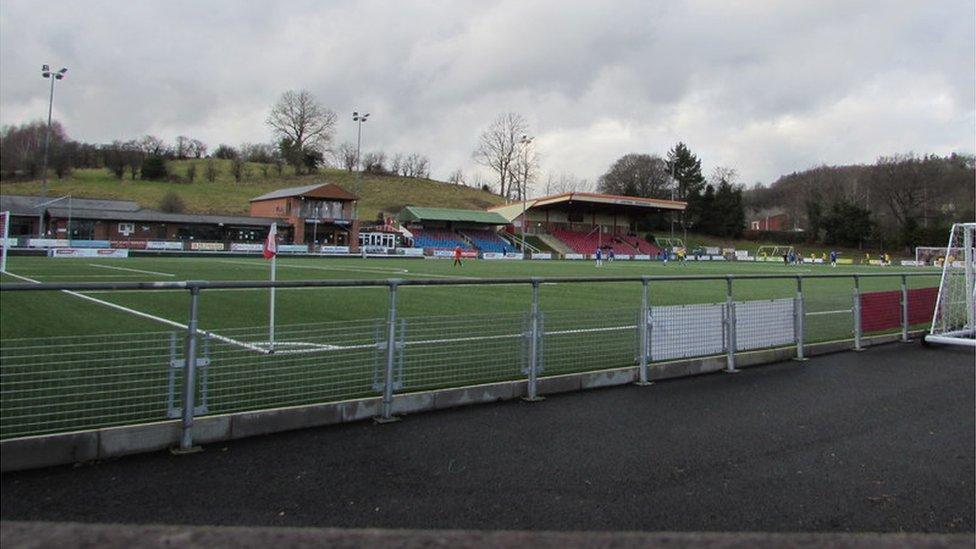
The alleged racist abuse happened during a game between STM Sport and Cefn Albion at Latham Park, Newtown, in March
Dyfed-Powys Police said it investigated but found insufficient evidence "to prove the identity of the offender".
The FAW said it "thoroughly investigated" the allegation but it was found not proven due to a lack of evidence.
A spokesman said STM Sport were "encouraged" to give evidence, but "this was rejected by the individuals".
At the time, Cefn Albion said, external it was "delighted and relieved to have been vindicated on these serious allegations".
Sean Wharton - a former professional footballer from Cwmbran who played for teams including Cardiff City and Sunderland - said he was regularly the victim of racism during his playing career.
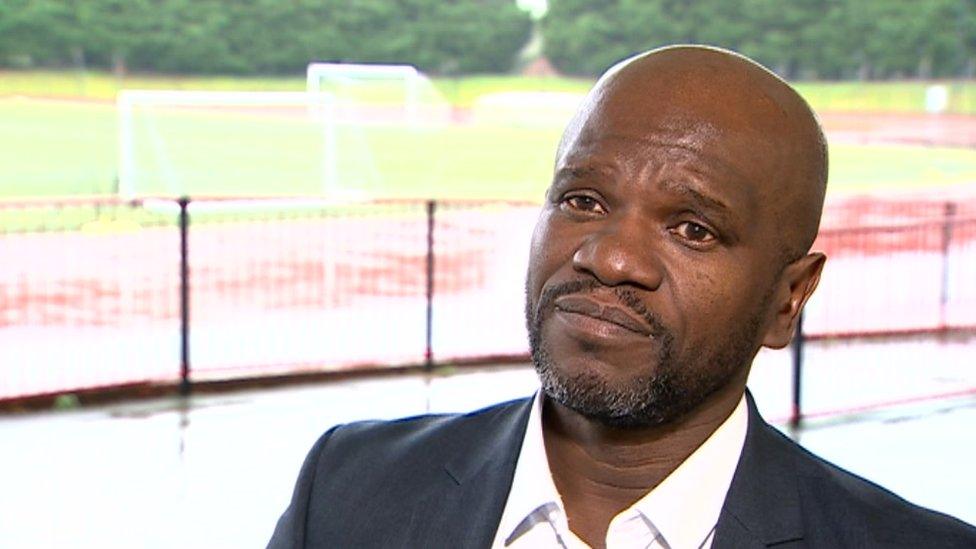
Sean Wharton educates young people about racism for the Show Racism the Red Card charity
Now an anti-racism educator for Show Racism the Red Card, Mr Wharton said racism could have a "massive effect".
"There is research which shows that racism has a negative impact on players' mental health in terms of confidence, in terms of belonging, in terms of self-belonging," he said.
"You can't underestimate the impact that racism has on individuals within football and society. It makes you question who you are and your self-worth and self-belief."
FAW accounts, external show a turnover of almost £13m last year. Its only spending on fighting racism was a £19,000 grant to Show Racism the Red Card, external.
The FAW said it worked with other anti-discrimination charities and campaigns, including Stonewall, We Wear the Same Shirt and UEFA Respect/Equal Game.
To be "anti-racist" rather than "non-racist", Mr Wharton said football chiefs need to believe victims who are "fed up of nothing happening" when they report racism.
Societal hate crime recorded by police in Wales rose by 14% last year, according to Home Office figures, external.
Mr Derrick agreed with the FAW that problems with racism in football were a reflection of society, but called for independent adjudicators at games.
The FAW said the referee is the independent adjudicator at every game and encouraged all victims of racism to report it.
- Published13 April 2019
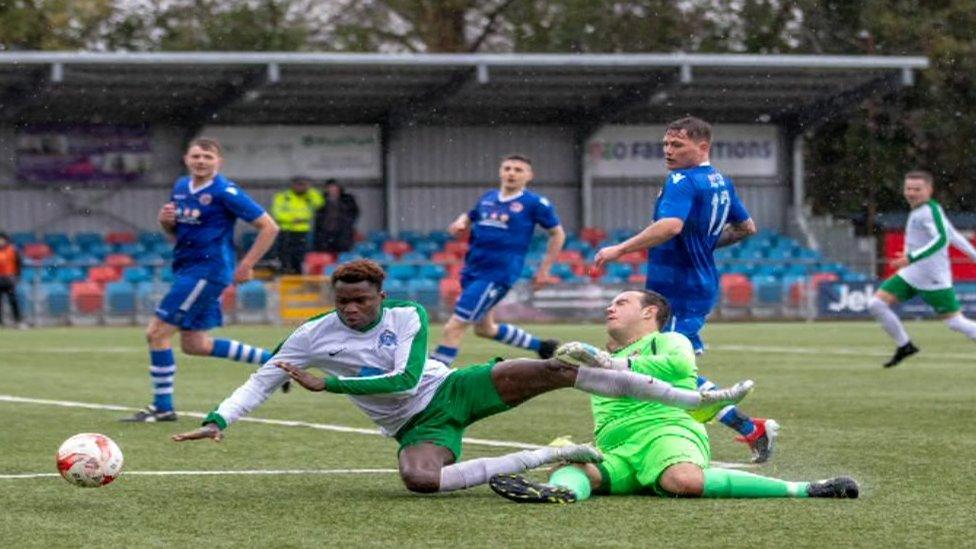
- Attribution
- Published27 January 2012
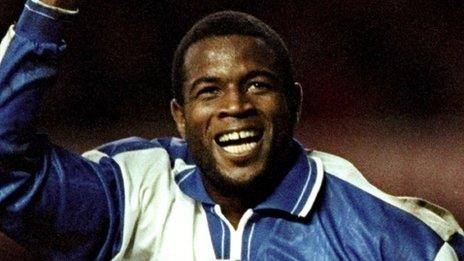
- Published11 April 2019
